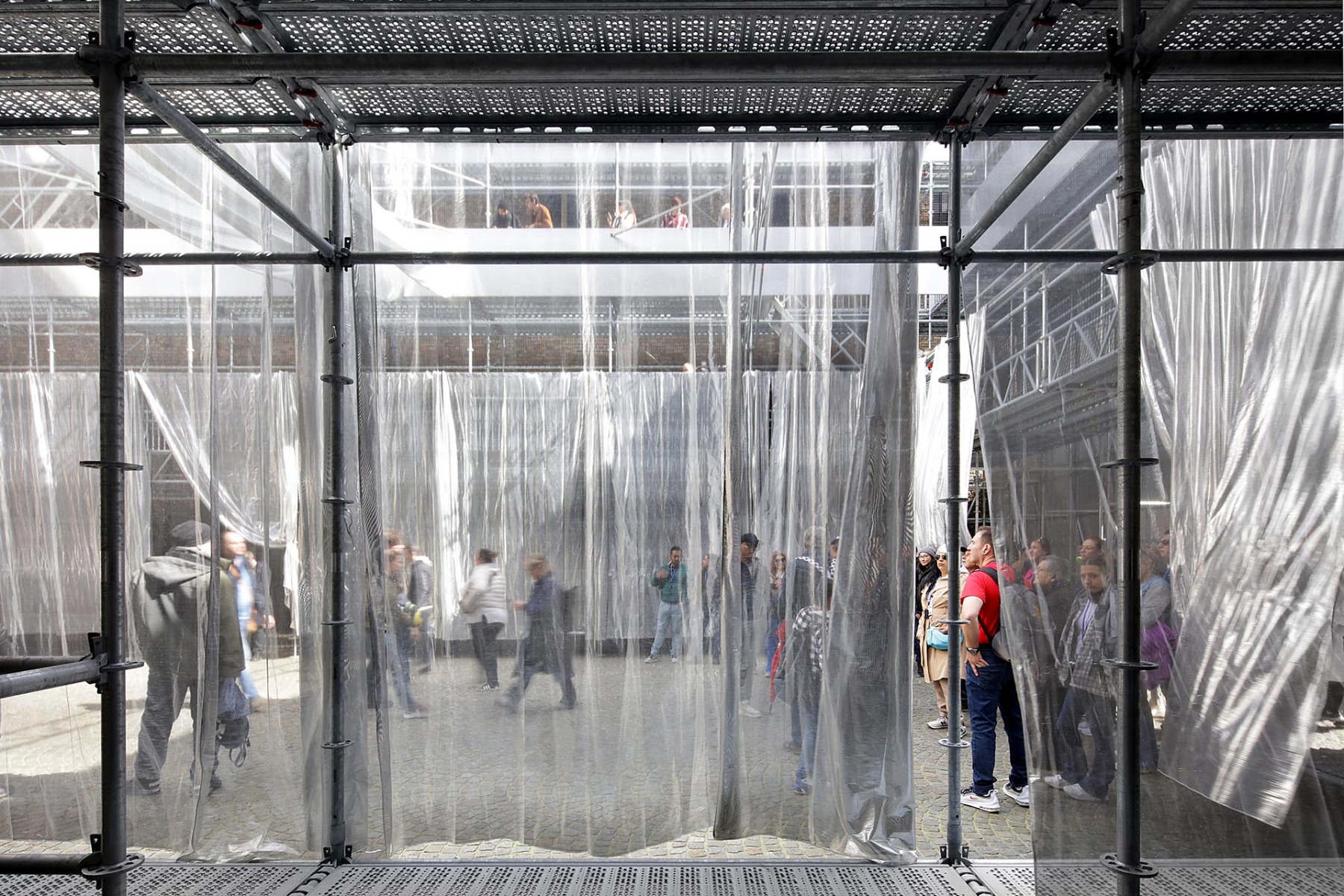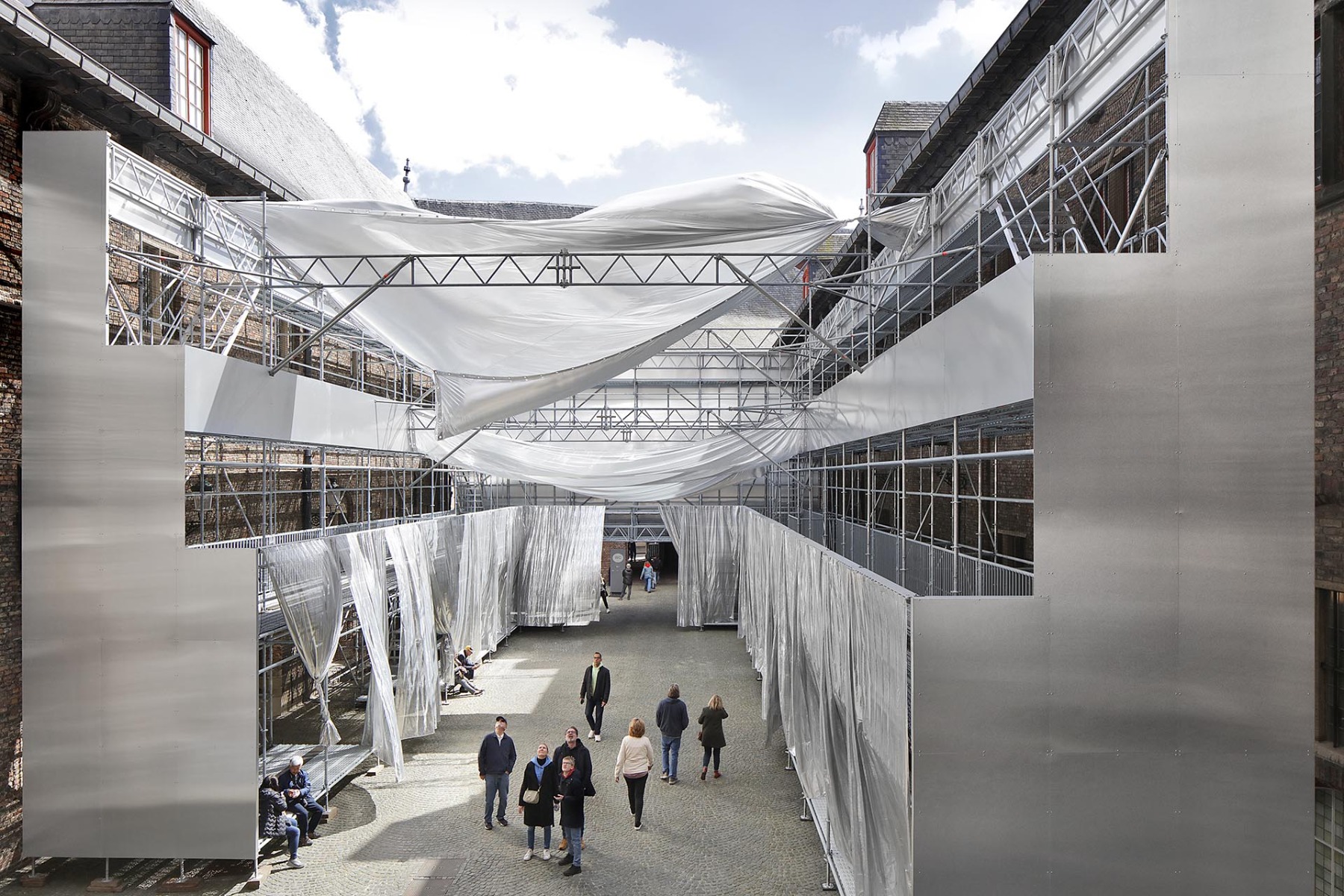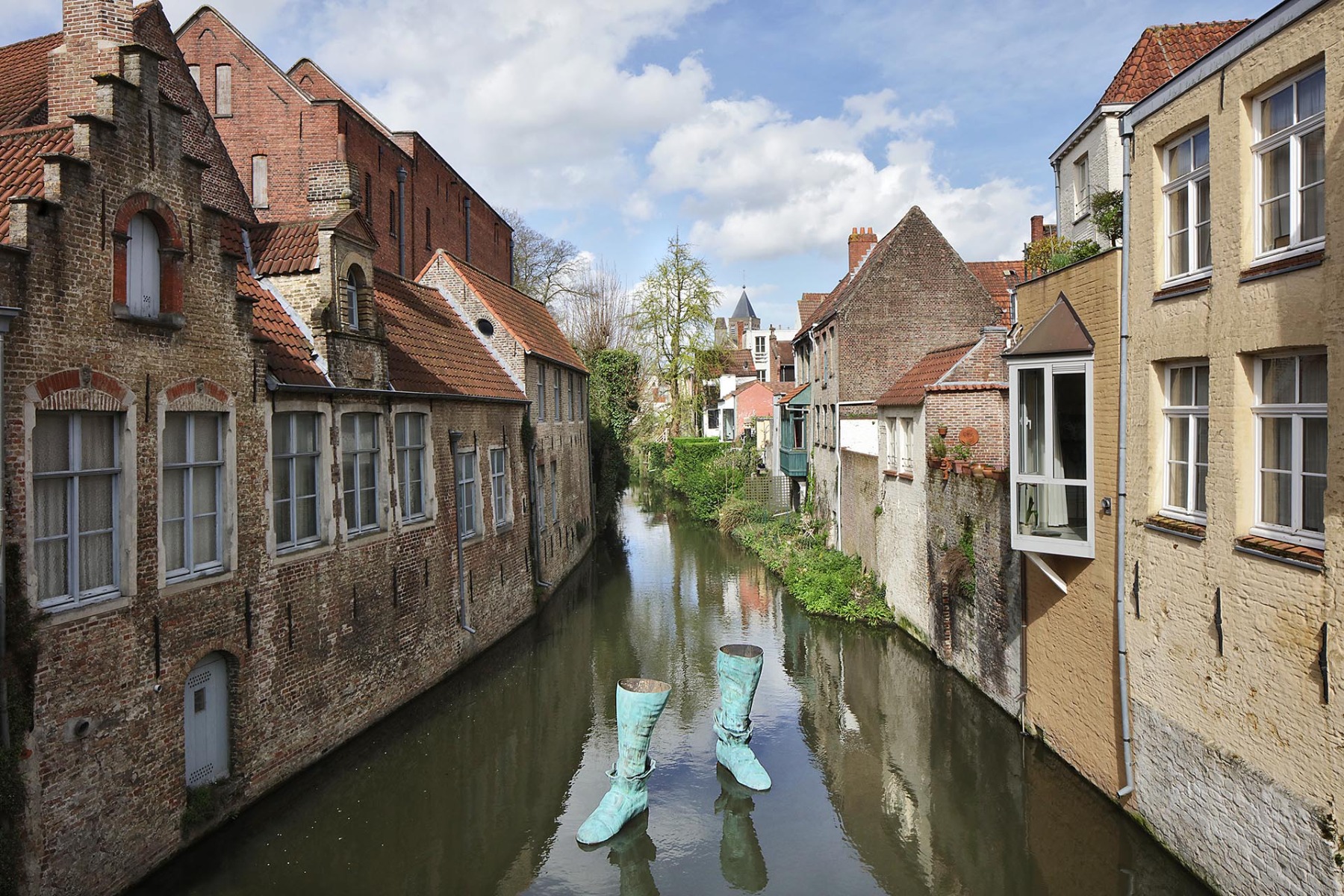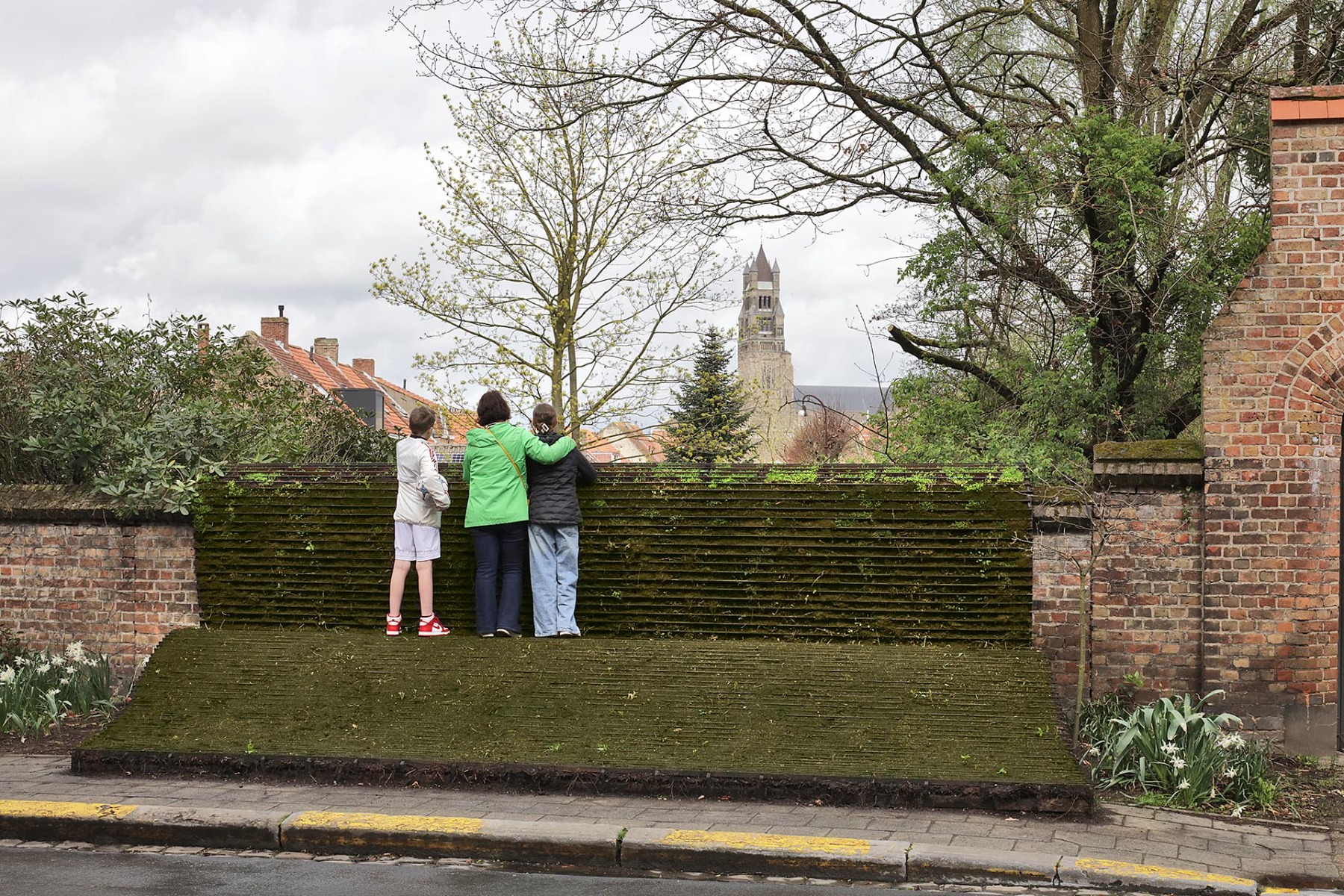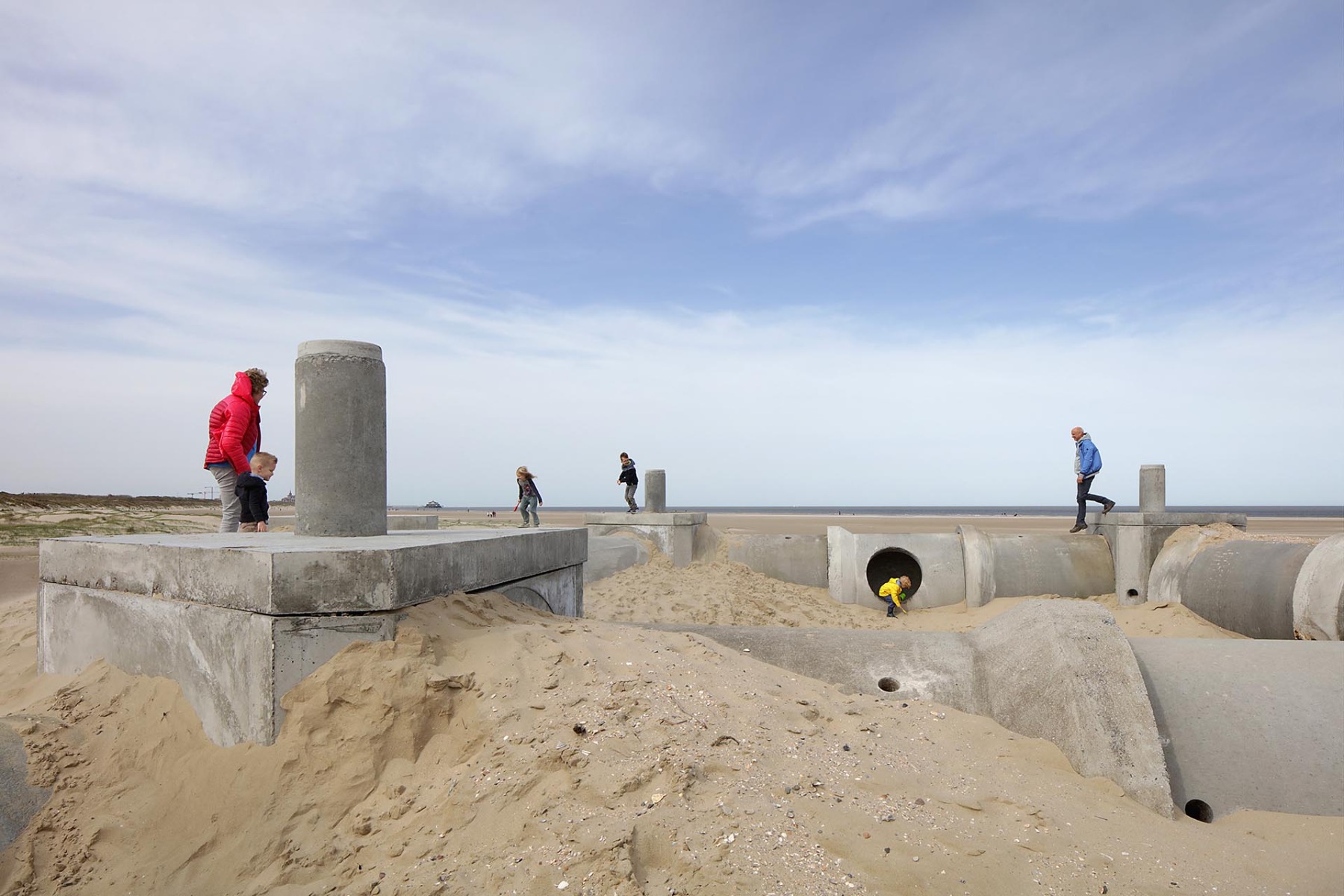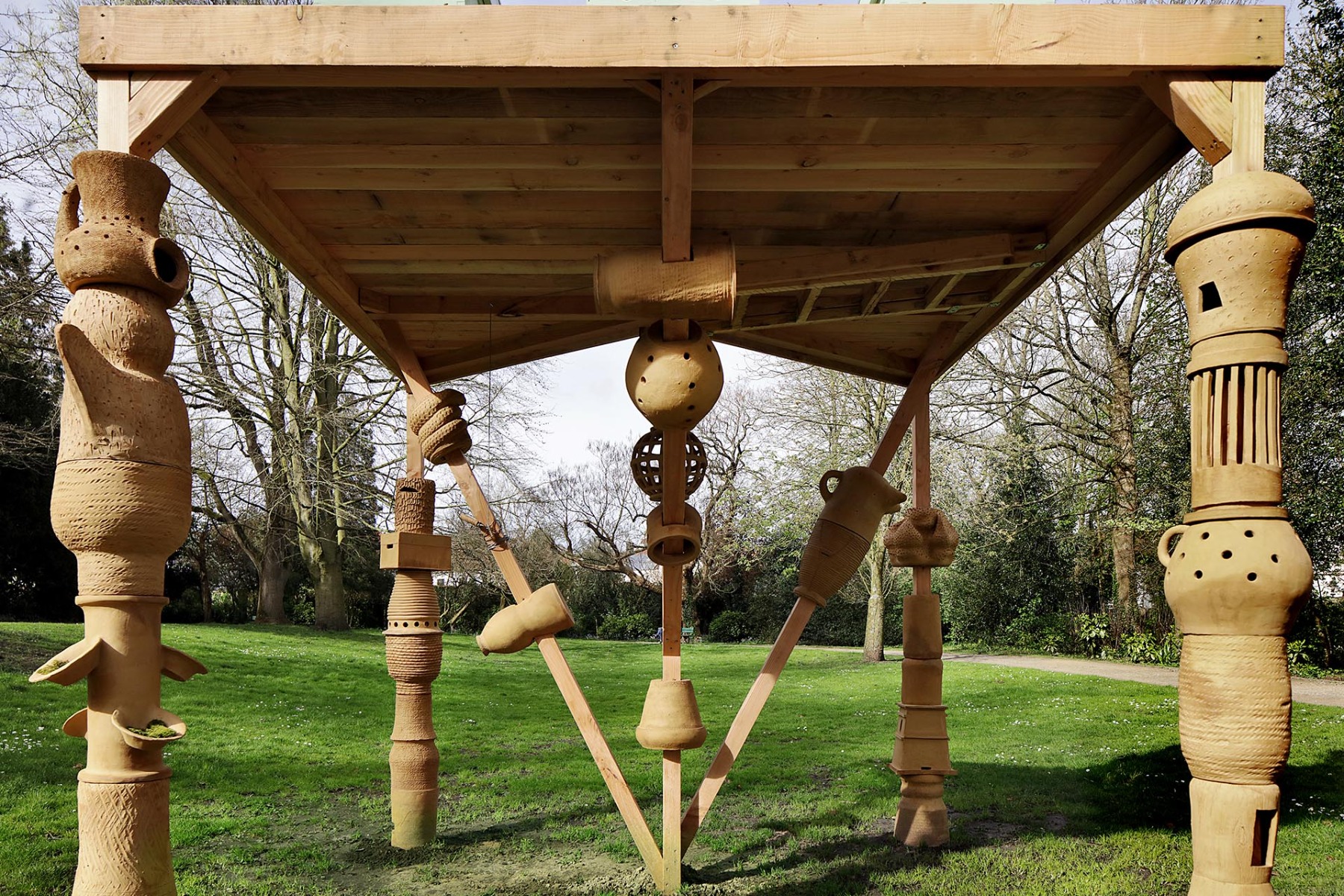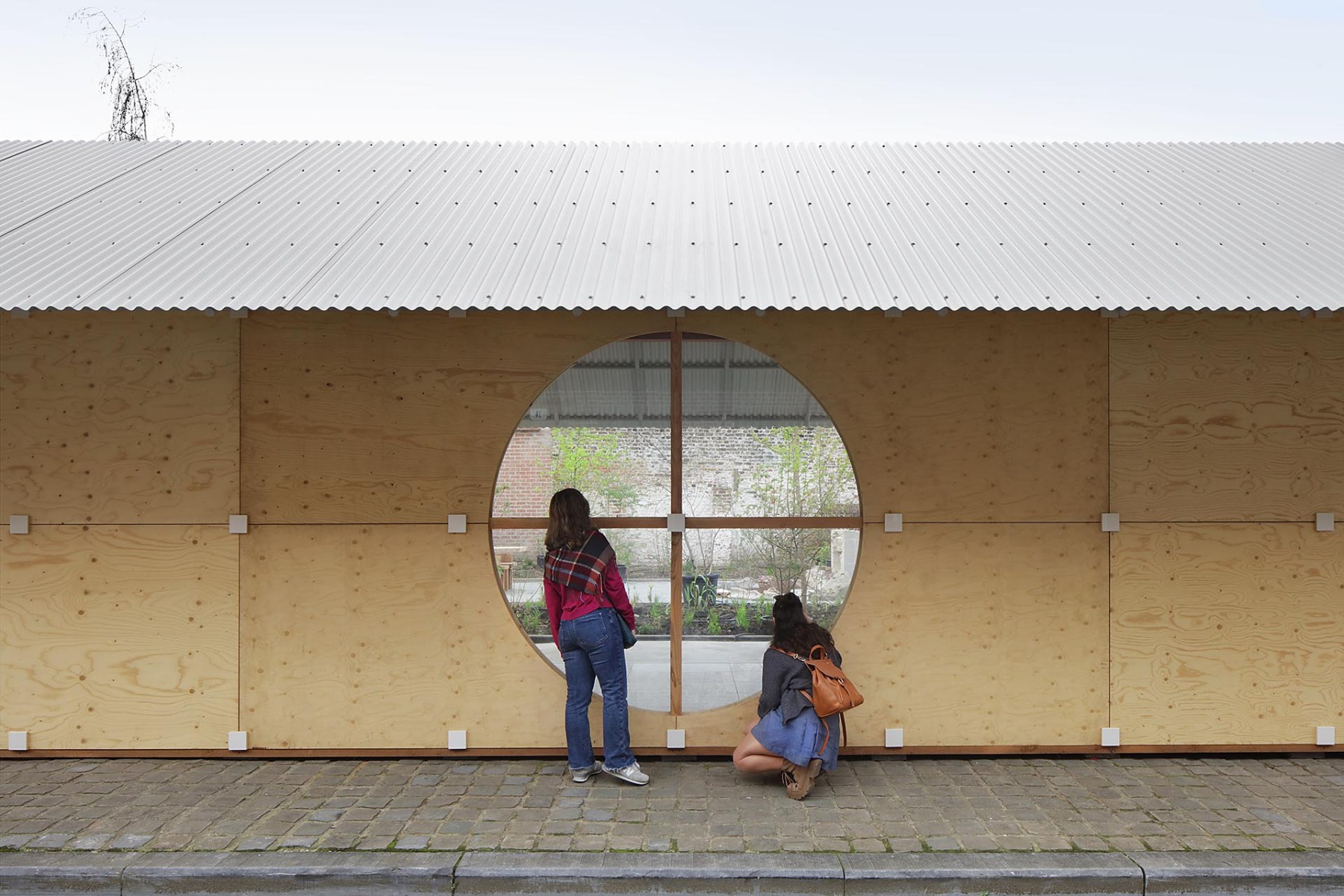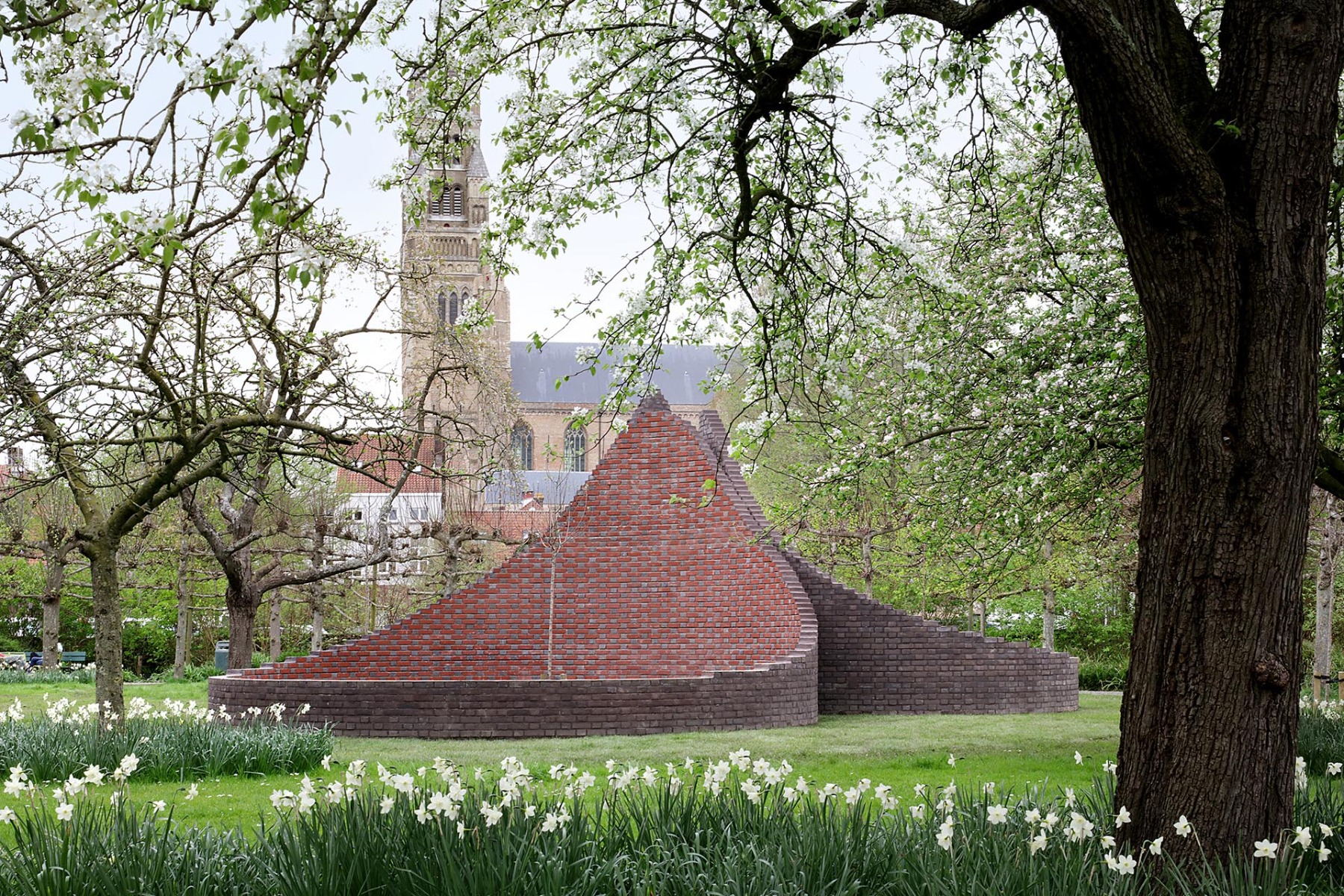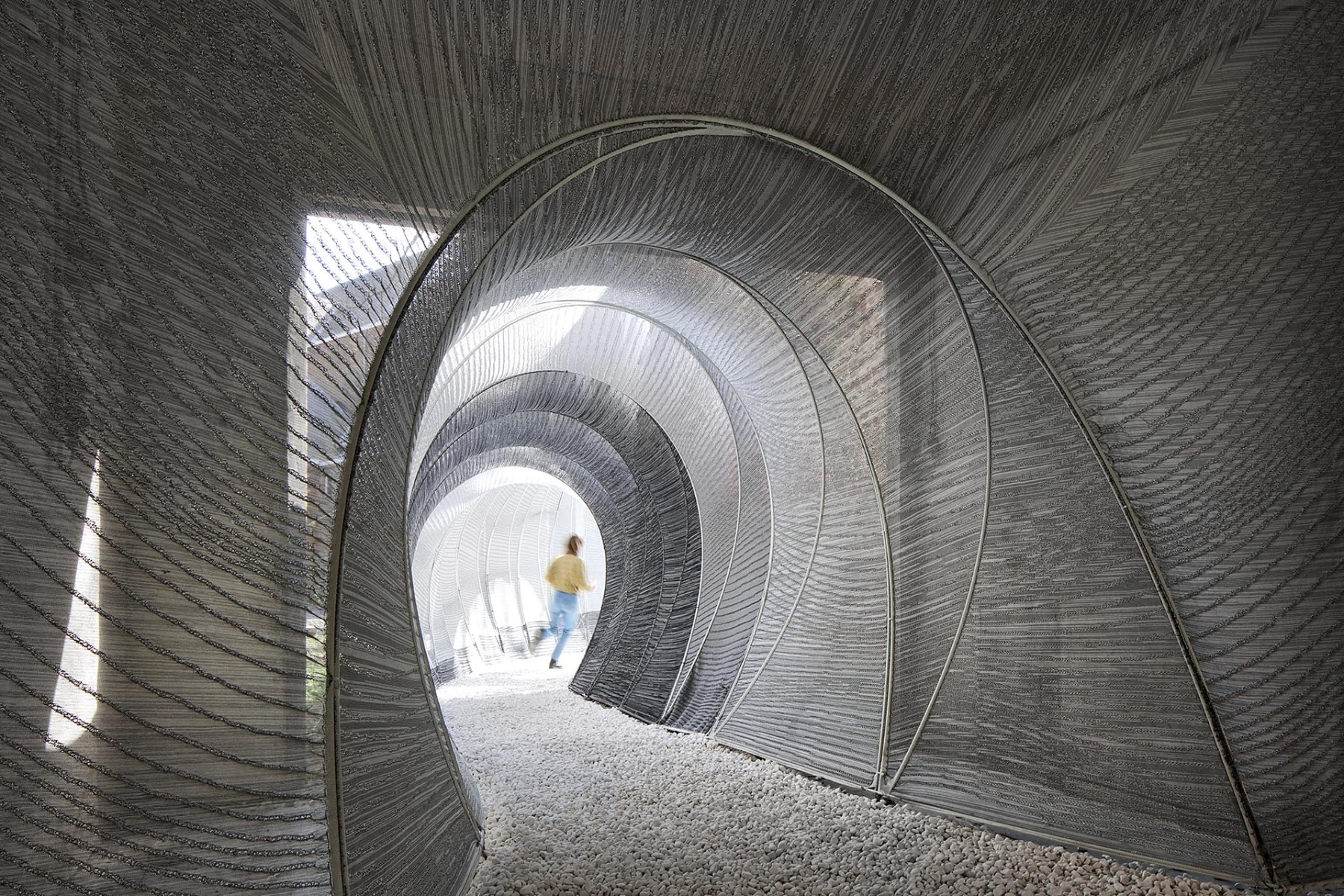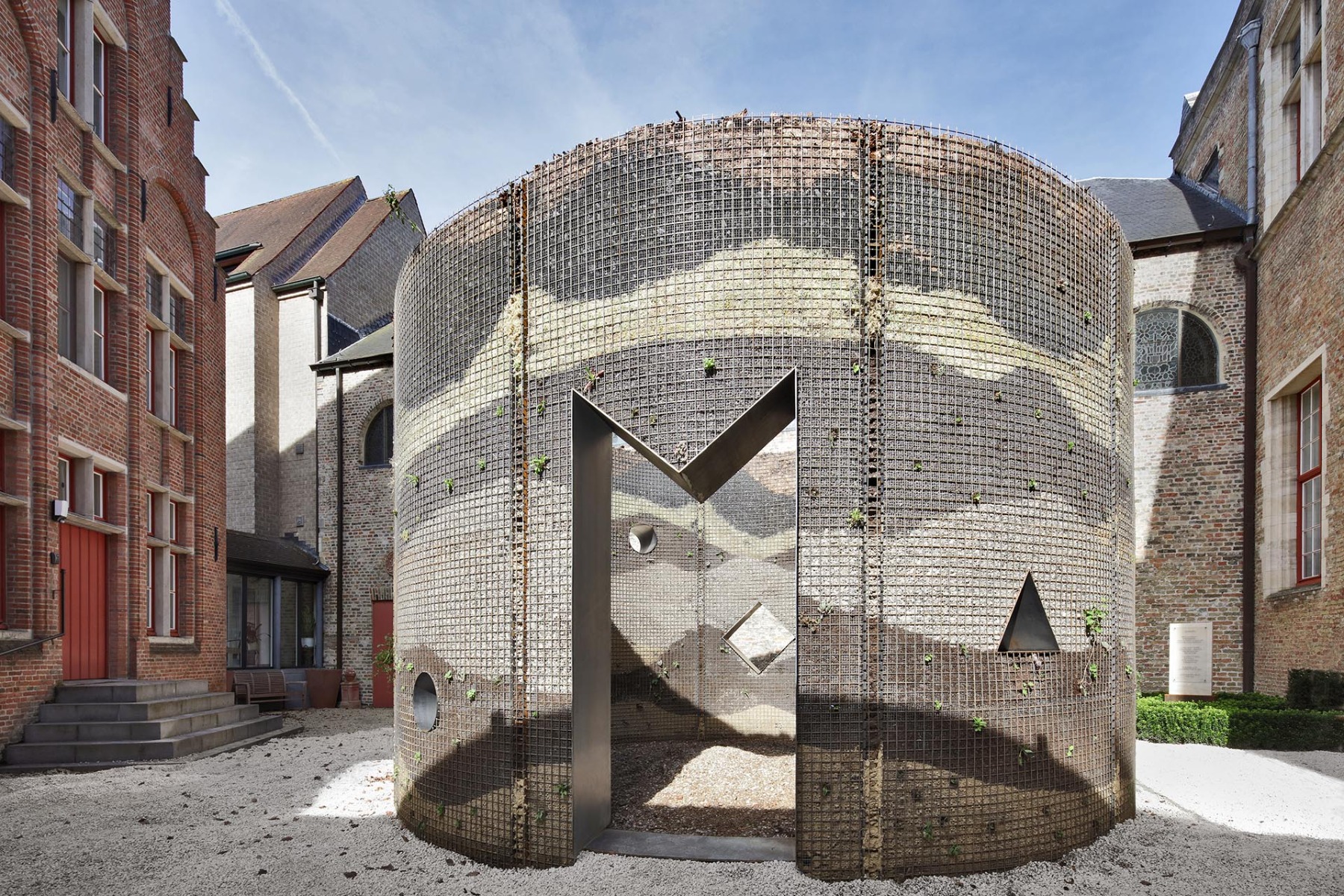Bruges Triennial 2024
Discovering the City's Potential: Spaces of Possibility

Intervention The Joyful Apocalypse from the architecture office Traumnovelle, Bruges Triennial 2024, © Filip Dujardin
For the fourth time, the Triennial is taking place in Bruges. Under the motto "Spaces of Possibility", visitors can explore for free until September twelve street-installations by selected artists and architects and visit four cultural institutions. With this motto, the city wants to question the supposedly unchangeable and open the eyes of the visitor to the potential future.


View of the work Who? by Iván Argote, Bruges Triennial 2024, © Filip Dujardin
Overlooked places and unresearched solutions
In 2000, the center of Bruges was declared a Unesco World Heritage Site. However, how can a protected city, where the focus is on non-construction, deal with change? How can urban adaptations take place between the historic buildings? How can the city handle the masses of tourists? And how can all these transformation ideas be implemented sustainably? These are the questions addressed by the interventions of the twelve invited artists and architecture firms. Their work aims to reveal new uses for the city and introduce fresh perspectives. This year's focus is on the districts of West Bruges, Zeebrugge and the city center.
Integrating nature and the city
Extreme weather events decrease the population of insects that pollinize plants, like bees for example. The instability leads consequently to crop deficiency and food insecurity. Based on that Mariana Castillo Deball, an artist originally from Mexico, developed her sculptural-architectural installation “Firesong for the bees, a tree of clay”. The installation is located at the Sebrechtspark and consists of ceramic columns for which the artist stacks various geographical and historical forms of beehives. Ceramic beehives were common until 1852 when the wooden version was introduced. The artwork refers to the forgotten iconographies, technologies and architectures from the history of beekeeping. At the end of the Triennial, the beehives will be donated to the city of Bruges.


View of the artwork Firesong for the bees, a tree of clay by Mariana Castillo Deball, Bruges Triennial 2024, © Filip Dujardin
Temporary redesign of the public square
The Swedish architecture firm Norell/Rodhe has temporarily transformed a relatively unknown municipal square into a community garden. The name of the new meeting place "Raamland" refers to the history of De Meers, a marshy urban area that was uninhabitable until the 17th century. It was therefore mainly used as a place to set up the wooden racks (raamen) on which Flemish cloths were hung to dry. With their work, which consists largely of reused materials, Daniel Norell and Einar Rodhe want to encourage society to use materials more consciously in the future and to start with architecture where buildings end.


Installation by the architecture firm Norell/Rodhe, Bruges Triennial 2024, © Filip Dujardin
Diverse and inclusive program
In addition to the street installations, four cultural institutions are offering exhibitions and cultural activities on various themes such as climate change and history. The overall program of the Bruges Triennial also includes guided tours, educational offers for schools and families and accessible tools. Among the accessible options are audio guides, texts in Flemish sign language and accessible routes to selected installations.
Event: Triennale Brugge 2024
Location: In Bruges city centre and Zeebrugge (BE)
Duration: 13. April until 1. September 2024
Further Information: triennalebrugge.be



